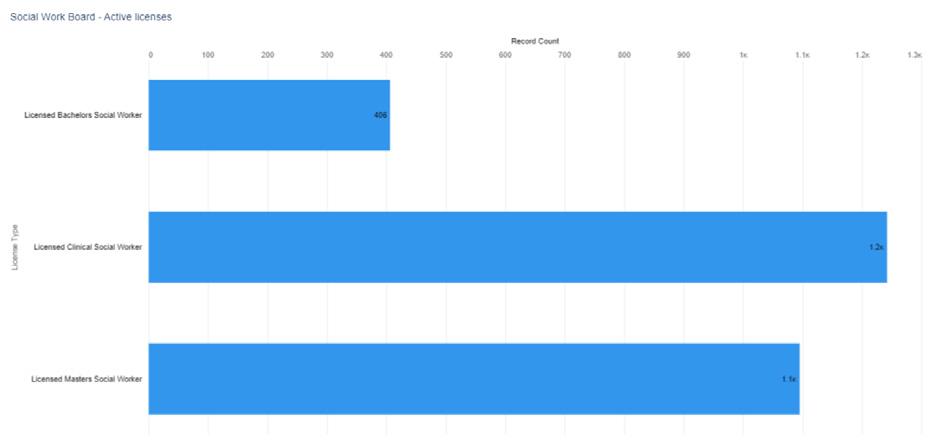
2 minute read
Board of Social Work Examiners
from DJPH - Delaware's Healthcare Workforce
by Delaware Academy of Medicine and the Delaware Public Health Association
The primary objective of the Delaware Board of Social Work Examiners is to protect the public from unsafe practices and practices which tend to reduce competition or fix prices for services. The Board must also maintain standards of professional competence and service delivery. To meet these objectives, the Board • develops standards for professional competency, • promulgates rules and regulations, • adjudicates complaints against professionals and, when necessary, imposes disciplinary sanctions. The Board issues licenses to clinical social workers (see figures 1-5). The Board’s statutory authority is in 24 Del. C., Chapter 39.
CLINICAL SOCIAL WORKER
Clinical social work is a specialty practice area of social work which focuses on the assessment, diagnosis, treatment, and prevention of mental illness, emotional, and other behavioral disturbances. Individual, group and family therapy are common treatment modalities.1
BACHELOR AND MASTERS SOCIAL WORKERS
While there are some social work jobs open to candidates with a bachelor’s degree in a related discipline, a bachelor’s in social work (BSW) is the minimum educational requirement for many positions. BSW program graduates can go on to work as community organizers, case managers, probation officers, and more.2 A Master of Social Work (MSW) degree is the standard requirement for the Licensed Clinical Social Worker (LCSW) credential. However, earning an MSW does not means a practitioner must become an LCSW. MSW graduates can also pursue non-clinical social work jobs or other careers in human services. The LCSW allows social workers to offer psychotherapy services and requires additional testing and experience that is not typically required in those other roles.3
Figure 1. Active License Social Work Practitioner Licenses by Type*, N=2,743
* an active license does not guarantee an individual is actively seeing patients.
Figure 3. Active License Social Work Practitioner Licenses by Birth Year
Note. 16 individuals did not provide a year of birth
* According to the Social Security Administration “Full retirement age is the age when you can start receiving your full retirement benefit amount. The full retirement age is 66 if you were born from 1943 to 1954. The full retirement age increases gradually if you were born from 1955 to 1960, until it reaches 67. For anyone born 1960 or later, full retirement benefits are payable at age 67.”
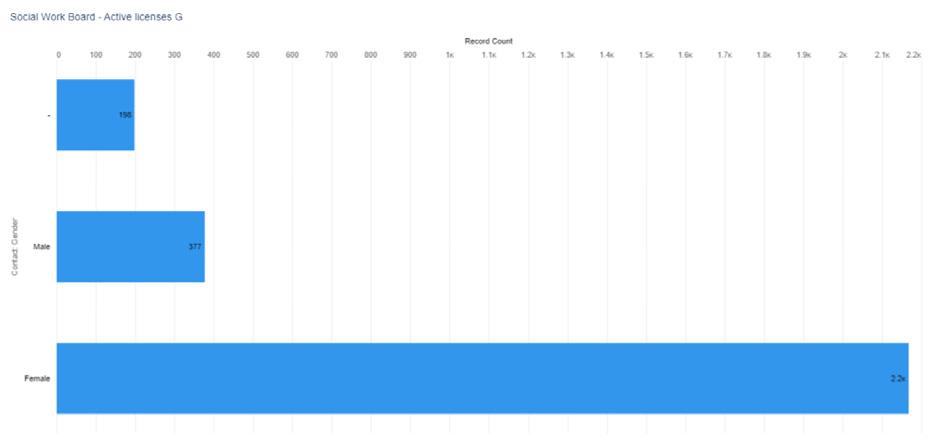
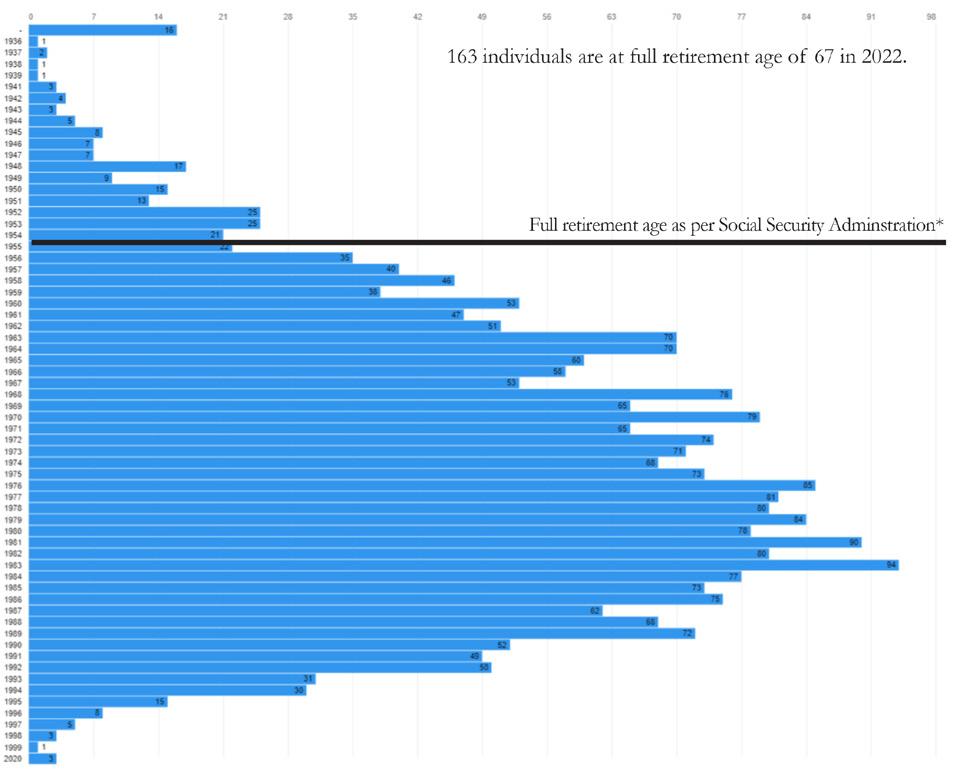
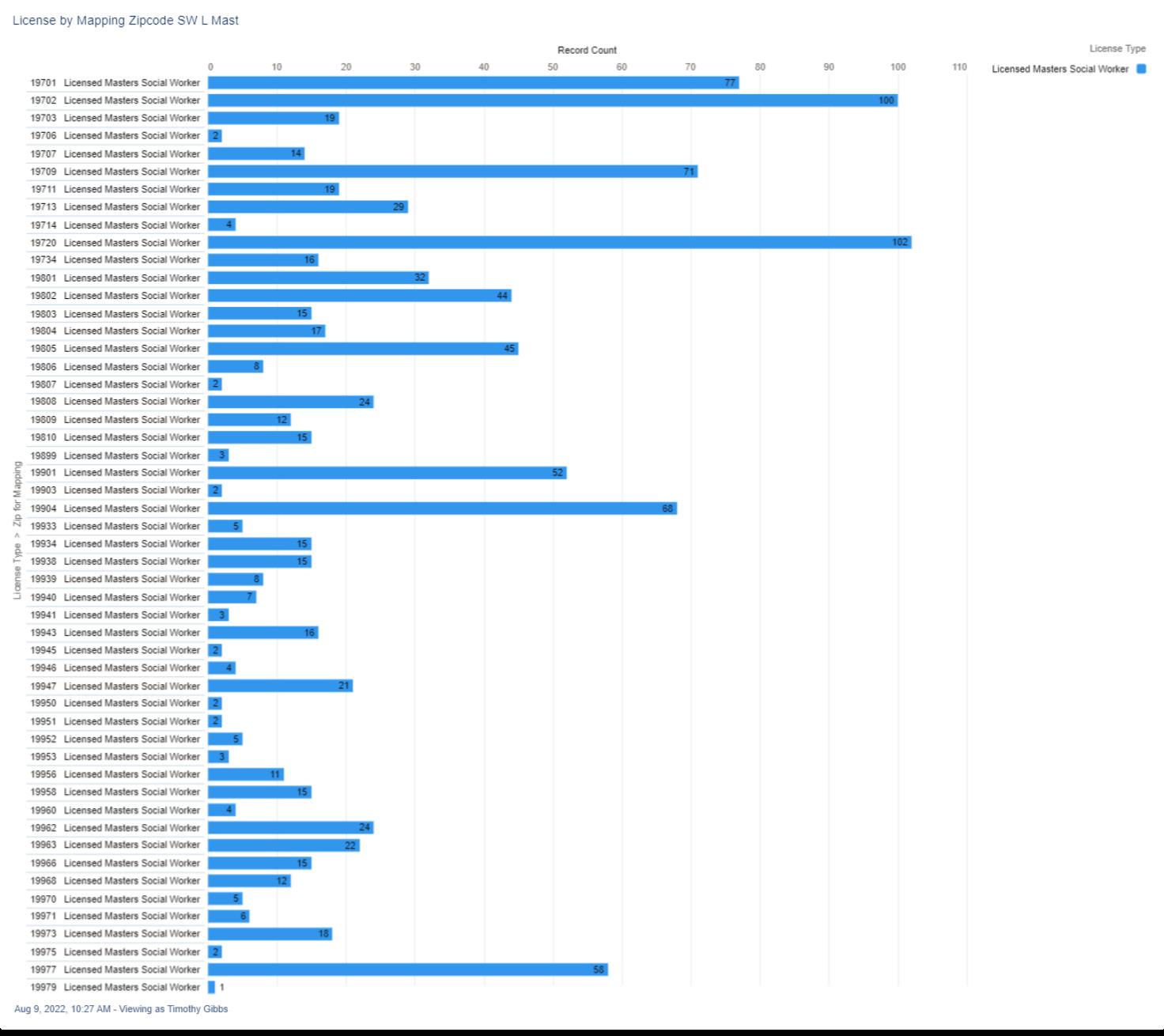
Figure 5 shows most, but not all, ZIP codes due to scaling limitations. Hot spots are employed to bring perspective to viewing the overall map and distribution of healthcare professionals and should not be interpreted has valuing value without referring to the numbers listed in the chart above.
Figure 5. Visual Distribution of Active Master of Social Work License by ZIP code
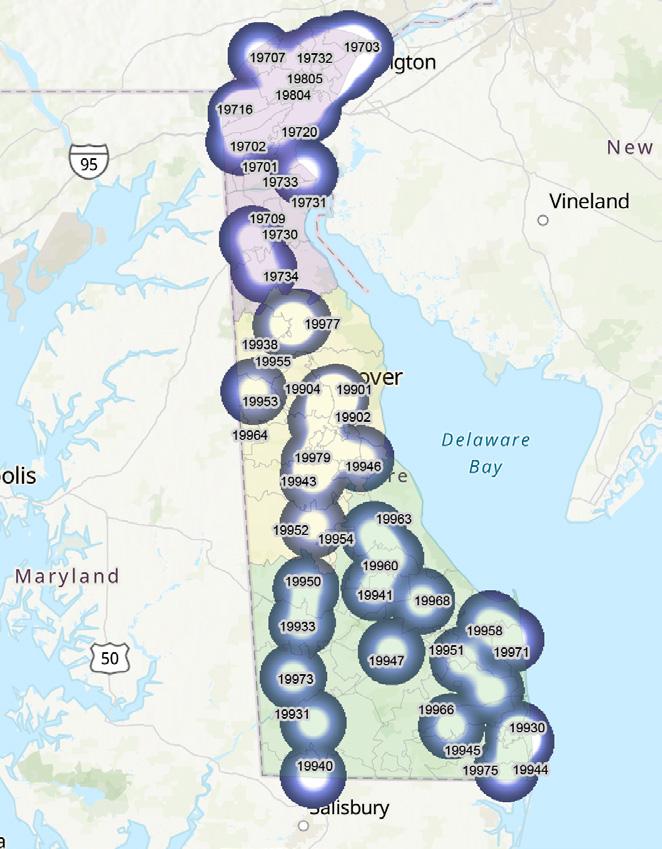
REFERENCES
1. National Association of Social Workers. (n.d.). Clinical social work.
Retrieved from: https://www.socialworkers.org/Practice/Clinical-Social-Work 2. Social Work License Map. (n.d.). How to become a licensed clinical social worker (LCSW).
Retrieved from: https://socialworklicensemap.com/social-work-careers/become-a-lcsw/ 3. Wilson, S. (2021, Jun). LCSW vs. MSW (Master of social work). Human Services Edu.
Retrieved from: https://www.humanservicesedu.org/lcswvsmsw/





